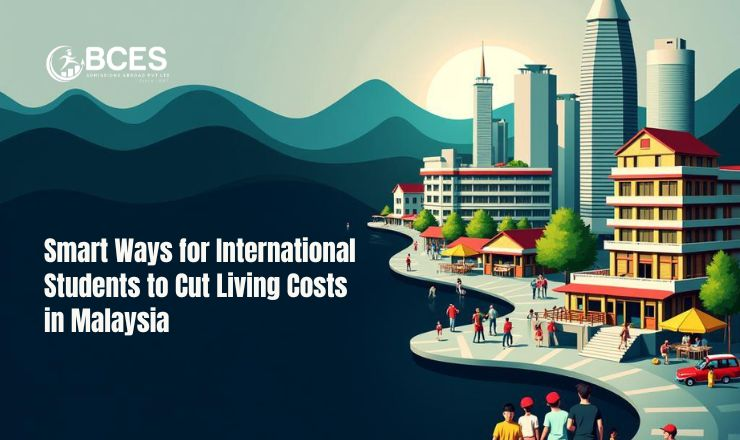Smart Ways for International Students to Cut Living Costs in Malaysia

22 August 2025
Malaysia is now a favorite study destination for foreign students, with its world-renowned universities, multiracial community, and affordable cost relative to the UK, USA, or Australia. But even though the cost of tuition fees is lower, most students still have no idea how to cope with expenses for daily living in a foreign land. The best part is that living in Malaysia is really economical if you know how to plan well.
The greatest hardship for most students when they arrive is paying their academic costs versus daily expenses like accommodation, food, and travel. Malaysia eases this considerably by providing a broad variety of affordable ways of life. From subsidized university dorms and communal apartments to cheap street food and effective public transportation, students enjoy several alternatives to make their money go further without sacrificing convenience. With some planning, you will be able to have all Malaysia has to give without hurting your budget.
One of the friendliest things for students about Malaysian life is the number of discounts and promotions. From the monthly public transport passes to cheap meal plans and concession prices at tourist spots, students are able to experience local culture for a fraction of what it normally costs. Most universities also offer financial advice, so newcomers can blend in soon enough with the local way of life.
The greatest respite for international students is food. Malaysia is renowned for having mouth-watering yet inexpensive food. A healthy meal at a hawker stall or a cafeteria on campus may cost as low as 8–10 RM, which is relatively inexpensive in comparison to what eating out would cost in Western nations. Students are also able to save more money by eating at home. Purchasing fresh fruits and vegetables at local markets or discount stores and cooking meals with friends not only saves money but also makes student life more enjoyable.
Transportation in Malaysia is also a place where students can save money. Due to government investment in metro lines, commuter trains, and buses, getting around is easy and affordable. Monthly travel student passes are being offered, which provide huge savings on daily commutes. Ride-hailing applications such as Grab are also common, but it’s better to use them on occasions and not on a daily basis in order not to overspend.
Accommodation is generally the most expensive item for foreign students, but there are economical alternatives everywhere. Dormitory accommodation or joint flats are significantly less costly than renting an apartment alone. For instance, a joint student flat in Kuala Lumpur typically costs between 600 RM and 1,000 RM monthly. Dwelling near the campus not only cuts rent costs but also transportation fares, and that makes it a prudent option for budget-conscious students.
Another method through which students finance their expenditures is by part-time jobs. According to present laws, international students in Malaysia are allowed to work for a maximum of 20 hours weekly during semester holidays in eligible industries like restaurants, retail shops, and hotels. Although these part-time jobs do not necessarily pay for the entire cost of living, they do offer additional money and good work experience.
At BCES Admissions Abroad, we feel that financial planning is as critical as making the right course or university choice. Our staff assists students in making sound decisions regarding accommodation, budgeting, and lifestyle so that their study experience in Malaysia is affordable and hassle-free. To get specialized advice on studying in Malaysia and keeping your living expenses low, contact us today at +91 9319996330. We are here to make your international education affordable and rewarding.
Frequently Asked Questions (FAQs)
The majority of students spend between 1,200 RM and 1,800 RM per month, depending on where they are from in Malaysia and how they choose to live.
Yes, Malaysia is far cheaper than the UK, USA, Canada, and Australia both to study and to live.
Yes. Most student residences have communal kitchens, so it is convenient and affordable to prepare meals in your own home.
Yes, international students can work part-time (up to 20 hours per week during semester periods) within industries like hospitality, retail, and food services.
BCES Admissions Abroad provides individualized counseling on university choice, budget-friendly accommodation, and saving money, so students can study in comfort without a heavy price tag.